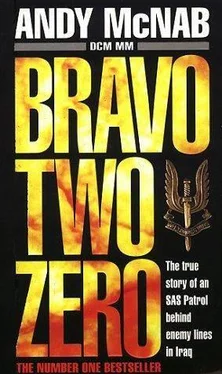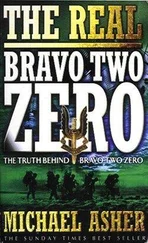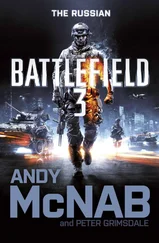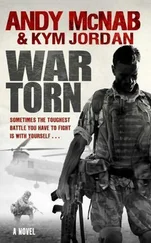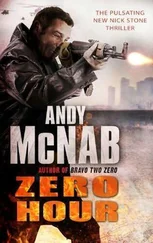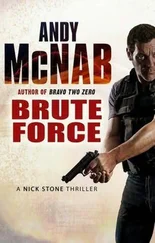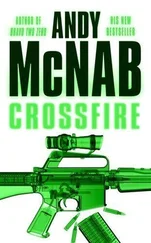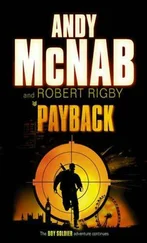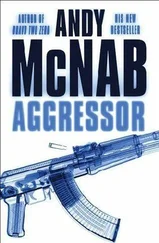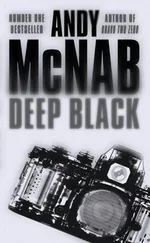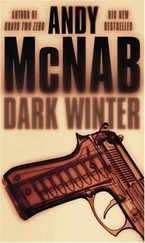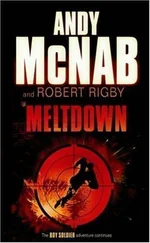The body has a thermostat, located in a small piece of nerve tissue at the base of the brain, which controls the production or dissipation of heat and monitors all parts of the body in order to maintain a constant temperature. When the body starts to go into hypothermia, the body thermostat responds by ordering heat to be drawn from the extremities into the core. Your hands and feet will start to stiffen. As the core temperature drops, the body also draws heat from the -head. When this happens, circulation slows down, and the victim doesn’t get the oxygen or sugar the brain needs: the sugar the brain ordinarily feeds on is being burned to produce heat. As the brain begins to slow down, the body stops shivering, and irrational behavior begins. That is a sure danger sign, but one it is hard to recognize in yourself because one of the first things hypothermia does is take away your will to help yourself. You stop shivering and you stop worrying. You are dying, in fact, and you couldn’t care less. At this point, your body loses its ability to reheat itself. Even if you have a sleeping bag to crawl into, you will continue to cool off. Your pulse will get irregular; drowsiness will become semiconsciousness, which will become unconsciousness. Your only hope is to add heat from an external source-a fire, hot drinks, another body. Indeed, one of the most effective ways of rewarming a hypothermia victim is to put them in a sleeping bag with another person whose body temperature is still normal.
I was feeling quite secure, which was silly because our situation was far from secure. We were on a barren landscape and occupying one of the two pieces of obvious cover for miles around. I was happy that we’d stopped because we could rest, but unhappy because our bodies wanted to keep on moving to keep warm. But there was nothing we could do except lie there and exchange body heat and wait for dark.
The compacted sand was like hard mud. It had looked alien before; now that it was covered in snow it looked like the moon. The snowfall turned into a blizzard. I tried to look on the bright side: at least it cut visibility down to about 150 feet.
Vehicles moved up and down all day, moving east and west as they followed the line of the pylons-civilian trucks, water bowsers, Land Cruisers, and armored, wheeled vehicles. The last two vehicles got us flapping because they came to within 600 feet of our position. Were they coming for us? Not that we could do much about it; we could hardly get up and run because there was nowhere to run to.
There were more vehicles than we were expecting, much more military activity, but that was not the major consideration now. Lying in the snow, lashed by a wicked wind, we were more concerned about keeping warm and keeping alive. We were physically exhausted and exposed to the wind. All the potential was here for a major drama. An already cold air temperature, combined with a strong wind, can produce an equivalent wind chill temperature that can kill. In a 30 mph wind, exposed flesh freezes in sixty seconds or less at just9 C. It was only much later that we learned that these were the worst weather conditions the region had experienced for thirty years. Diesel was freezing in vehicles.
From feeling secure I started to become seriously concerned. I’d seen people die in this sort of stuff. What a way to go, I thought, for the patrol to die of exposure rather than getting shot. I didn’t think I’d be able to bear the slagging.
We couldn’t sit up, because we would be silhouetted against the skyline. We were depending for concealment on the level of view: because they would have to look up, our hope was that the small wall would afford us cover as long as we kept still and kept down.
By 1100 the situation was getting out of control. We were huddled up, cuddling one another, shivering convulsively, muttering words of encouragement, making stupid irrelevant jokes. My hands were numb, frozen, and very painful. We had a mound of snow over us. It was a case now of sod the tactics, let’s try to survive. The balance was between breaking SOPs and therefore being compromised, and getting into such a bad condition that we would just die anyway. I decided that we’d have to break SOPs and get a brew on. I scraped a small hole and lit a hexy block. I filled a mug with water and held it over the flame. The heat on my hands and face was wonderful. I waved my hand to disperse the steam. I added coffee granules, sugar, and milk to the hot water and passed it around.
I immediately put on another brew of hot chocolate.
“Look at all that bloody steam,” said Dinger. “I might as well have a smoke.”
It was pathetic to watch him trying to light the cigarette. His hands were shaking so badly that he couldn’t get it in his mouth, and when he did it was soggy because his hands had been wet. He persisted, and five minutes later was inhaling contentedly, blowing the smoke into his smock to hide it.
By the time the hot chocolate came around everybody was shaking and gibbering again. The hot drink didn’t move us too many notches up the temperature chart, but it was better than a kick in the tits. Without a doubt, it had made the difference between life and death.
Come midday, vehicles were still passing. We couldn’t always see them but that didn’t matter. We’d hear them if they stopped. We tried to change around so that people on the outside who were exposed to the wind and snow had the chance to be surrounded by the others and get some body warmth. As our body core temperatures continued to drop, I realized that my speech was slurring and I was feeling very lightheaded. I was suffering from the first stages of hypothermia.
At about 1400 Mark realized that he was in deep trouble. “We’ll have to get going in a minute,” he blurted. “I’m starting to go down here.”
He was wearing less than the rest of us. All he had on his chest was his smock, shirt, and jumper, and those were soaking wet. We got around him and tried to give him our body heat. A decision had to be made, and we all had to be in on it because it affected us all: did we move in daylight to help Mark survive but risk a compromise? There were hours of daylight and we didn’t know what was out there. Or did we wait until the very last moment, when he thought he simply couldn’t take any more?
I tried to encourage him to hold on. “If we’ve got to move in half an hour, fine, but let’s try and stay here as long as we can.”
If he had shaken his head and said he needed to move, I would have got up without a murmur, but he nodded his assent.
By the time another two hours had elapsed it wasn’t just Mark who needed help. All of us were in a desperate state. If we stayed static, we’d be dead by the evening.
I peered over the wall. There was only about an hour and a half of daylight left; the cloud cover and snow would make it dark earlier. It was still snowing hard. I couldn’t see or hear anything, apart from the sight of a typically arid desert scene, covered in a blanket of thick snow.
“Let’s go,” I said.
We put in a deception plan because we would be leaving a lot of sign in the snow, though hopefully it would snow or rain during the night and destroy our trail. We headed east, then did a loop to end up going towards the northwest. The deception plan proved to be a good move because we were no more than a half mile off the position when we heard hooting and hollering behind us. We turned and saw lights. Vehicles were in and around our position.
“Shit!” Legs said. “All they’ve got to do now is follow the sign.”
But it was starting to get dark, and the tracks and footprints of the Iraqis must have got mixed up with ours and confused them.
The plan had been to head northwest after crossing the meta led road, then take the shortest route to the Syrian border. If we’d started to head northwest this side of the road, the chances were that we’d be compromised because of the movement we had seen during the day. But now the plan had to change. Water was going to be a problem soon. We’d filled up our bottles with snow, but even in the best of circumstances it takes a long time to melt and produces little water anyway. In our case, the weather was so cold that it stayed as snow and ice. You can’t eat snow. Not only does it waste crucial body heat melting in your mouth, but it cools the body from the inside, chilling the vital organs in the body core. We didn’t know where and when we’d be able to get water again. We had to get to the border as soon as possible.
Читать дальше
